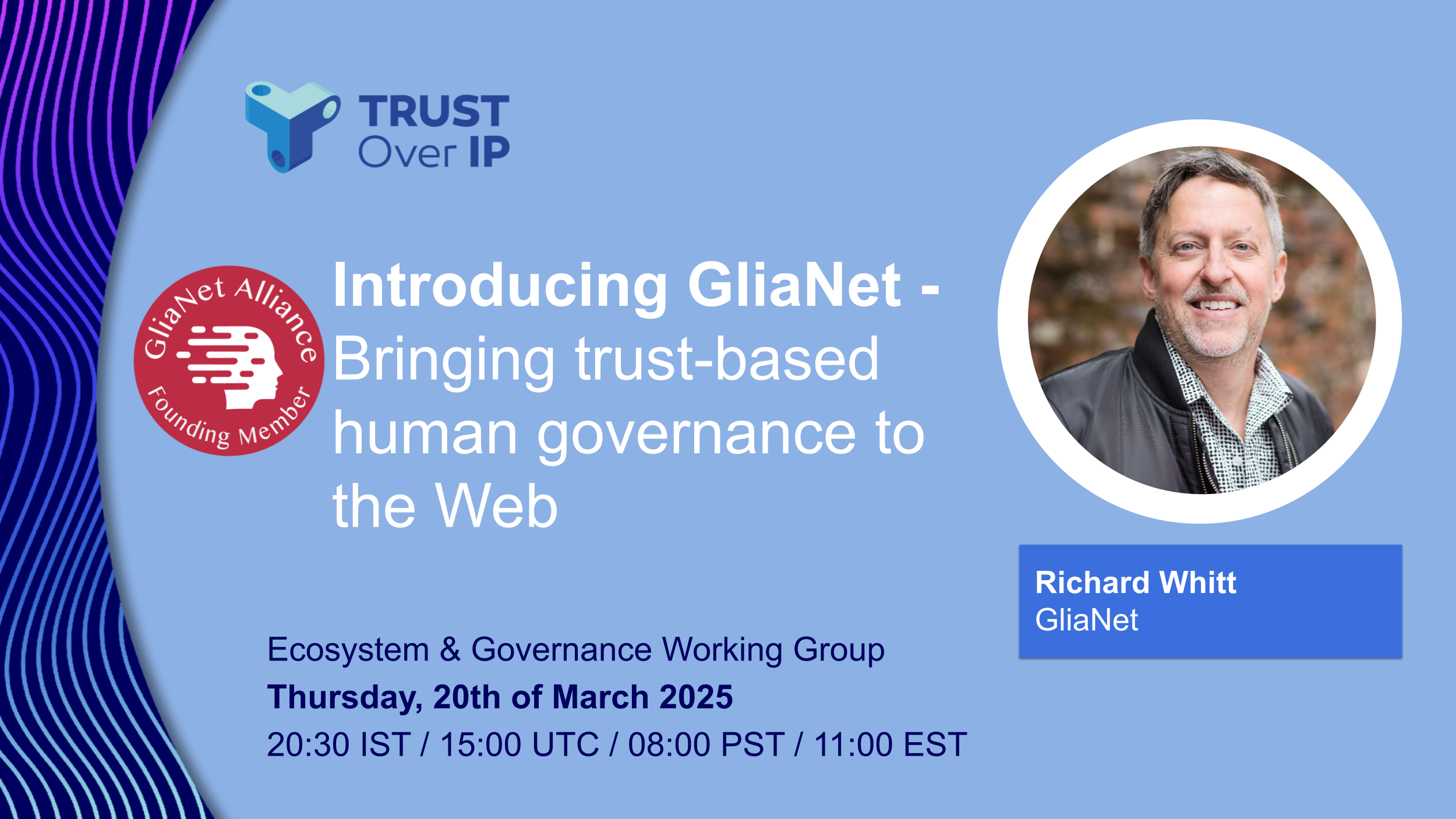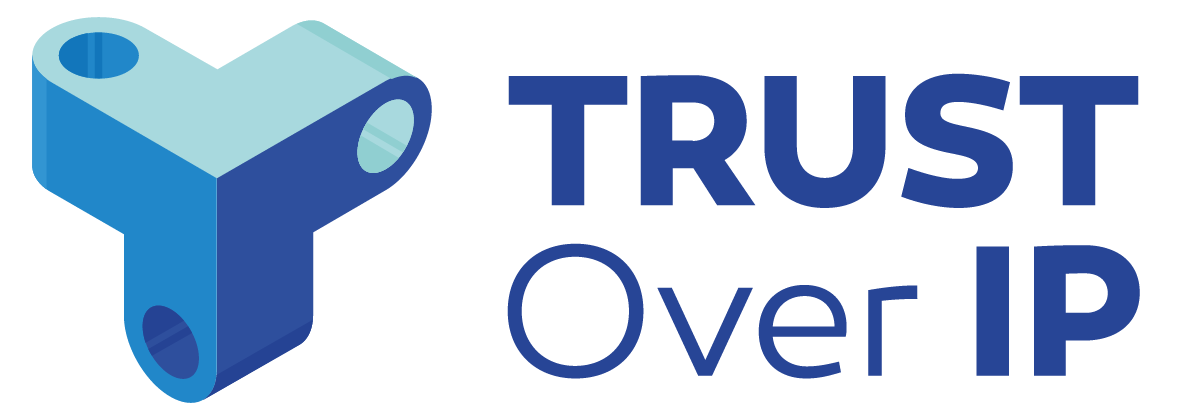
Status: Verified by Presenter
Please note that ToIP used Google NotebookLM to generate the following content, which the presenter has verified.
Google NotebookLM Podcast
This document and podcast were generated by Google’s NotebookLM. They provide information about Richard Whitt‘s vision for a more human-centric internet built on trust, as presented to the Ecosystem & Governance Working Group (EGWG) of the Trust over IP Foundation on March 20, 2025. It also draws from materials related to the GLIA Foundation and the GliaNet Alliance, founded by Richard Whitt.
The current state of the web is characterized by surveillance capitalism, where companies prioritize data extraction and manipulation, leading to a lack of trust. Richard Whitt argues that this undermines human agency and necessitates a shift towards a web built on trustworthy intermediaries.
His proposed solution centers around the concept of Net Fiduciaries, a new category of entities that would prioritize users’ interests through the application of fiduciary duties like care and loyalty, similar to professionals in medicine and law. This would be a voluntary approach, driven by ethical considerations and good business practices, rather than imposed regulations on existing platforms.
The GliaNet Alliance is a coalition of companies and organizations committed to this vision. Its goal is to build a “web worthy of trust” by fostering ethical technology practices and using transformative governance principles. The alliance operates as a community of practice, with working groups focusing on areas like business models, policies, practices, and standards.
Key concepts discussed include:
- The SEAMS cycle (Surveillance, Extraction, Analysis, Manipulation), which describes the problematic data practices prevalent on the web.
- Glea, the ancient Greek word for glue, symbolizing trust as the social glue.
- A multi-layered approach to change, encompassing governance, markets, technology (edge tech), and public policy.
- The importance of authentic personal AI agents that operate on behalf of the user, contrasting with the “double agent” nature of current AI assistants that primarily serve platform interests.
- The distinction between agenticity (capability) and agentiality (acting on behalf of) in AI systems.
- The potential for interoperability between AI agents across different platforms.
The alliance is exploring ways to demonstrate trust to the public, potentially through analogies (like a “doctor for your web life”), marketing that emphasizes fiduciary duties, and clear communication about data handling practices. They are also considering mechanisms for recourse in case of breaches.
Richard Whitt’s book, “Reweaving the Web,” further elaborates on these ideas, outlining the problems with the current web and proposing practical steps to create a more user-centric digital future. The book has received positive testimonials from prominent figures in the tech and policy fields.
The GliaNet Alliance is in its early stages, focused on building its community, establishing governance structures, and exploring business models that align with its ethical principles. They are also engaging with policymakers and exploring potential collaborations, including with the Trust over IP Foundation. Consumer Reports is an anchor member and is exploring branding its AI agent as a GliaNet project. Kwaai.ai, an open-source LLM project, is also part of the alliance, aiming to build a platform with fiduciary duties to developers and agents.
For more details, including the meeting transcript, please see our wiki 2025-03-20 GliaNet – Home – Confluence.
